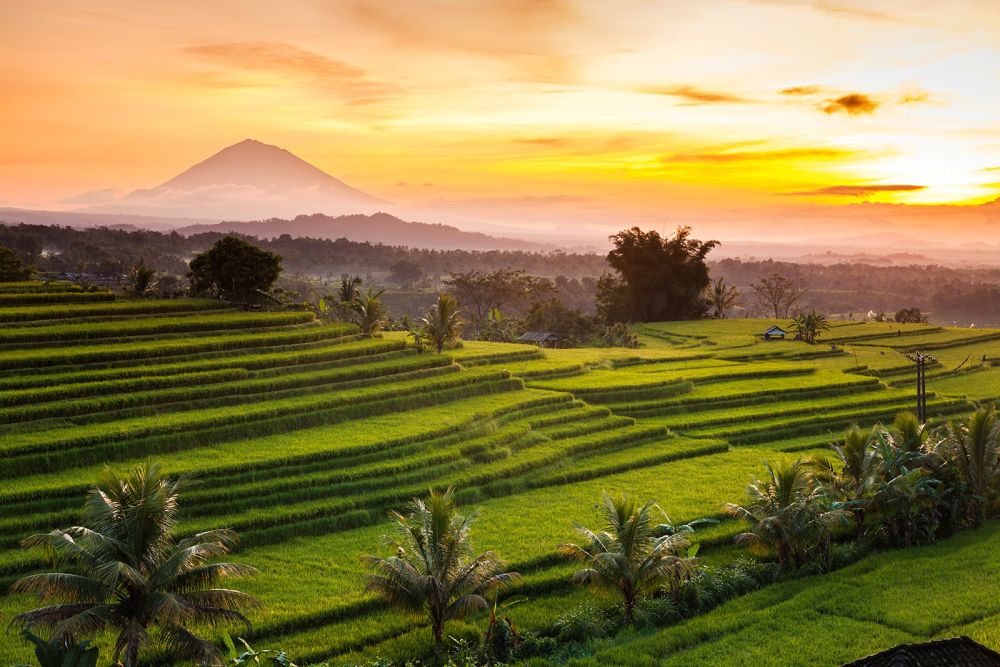

The Jatiluwih Rice Terraces are one of Bali's most iconic and breathtaking landscapes, reflective of the island's unique subak system of water management, which dates back to the 9th century. Recognized for their agricultural, cultural, and historical significance, the terraces are not only a source of local sustenance but also a site that attracts visitors from all corners of the globe.
The Jatiluwih Rice Terraces began to gain international attention in the latter part of the 20th century when Bali emerged as a global tourism hotspot. Traditionally, the economy in the Jatiluwih area was predominantly agricultural. However, as word spread about the island's stunning scenery and rich cultural heritage, more tourists began venturing inland to locations like Jatiluwih to witness its traditional farming practices and scenic beauty.
It was in 2008 that Jatiluwih was submitted for consideration to UNESCO’s World Heritage list. In 2012, recognition for their cultural importance was solidified when the Jatiluwih Rice Terraces were inscribed along with Bali's other traditional subak systems as a UNESCO World Heritage Site, defined as the Cultural Landscape of Bali Province. This acknowledgment boosted Jatiluwih's international profile, subsequently leading to an increase in the number of tourists seeking out its serene and pastoral views.
Modern visitors to the Jatiluwih Rice Terraces can expect an immersive experience into nature and traditional Balinese culture. The area offers several treks through the lush and expansive terraces, with opportunities to observe firsthand the complexity and beauty of the subak system, which is tied to the local religious beliefs in Bali.
Tourism Trends in Jatiluwih
Recently, there has been a push towards sustainable and eco-friendly tourism in Bali, and Jatiluwih has been at the forefront of this movement. Tour operators and local stakeholders have been working to ensure that tourism activities do not disrupt the natural environment or local way of life.
Additionally, community-based tourism initiatives have provided avenues for visitors to engage with local farmers and participate in traditional farming practices. This not only enriches the visitor’s experience but also promotes cultural exchange and supports the local economy.
Emphasis on eco-tourism has also led to an increase in the offerings of various accommodation options, from eco-lodges to luxury resorts that respect the landscape's integrity while providing comfort to visitors. Moreover, culinary tourism has seen growth, with visitors eager to sample traditional Balinese cuisine made from fresh, locally-sourced ingredients.
In summary, the Jatiluwih Rice Terraces offer a harmonious blend of natural beauty, cultural wealth, and sustainable tourism practices – ensuring that its history, culture, and landscape can be preserved for many generations to come.